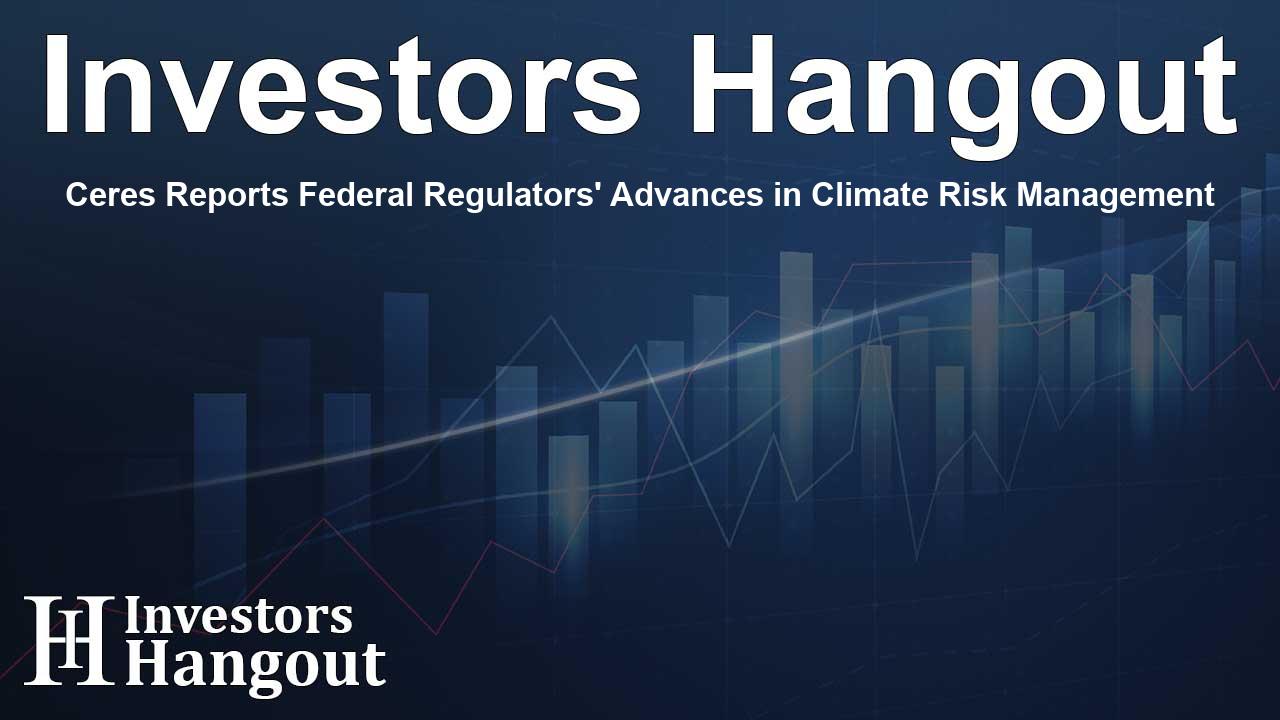Ceres Reports Federal Regulators' Advances in Climate Risk Management

Ceres Highlights Progress in Climate Risk Management
A recent scorecard reveals that ten federal financial regulators in the U.S. have implemented numerous actions to combat the financial risks posed by climate change in the past year and a half. While significant strides have been made, particularly in research and regulatory oversight, more remains to be done as the effects of climate-related disasters escalate.
Understanding the 2024 Climate Risk Scorecard
The 2024 Climate Risk Scorecard: Assessing U.S. Financial Regulator Action on Climate Financial Risk indicates that while regulators have begun to incorporate climate risk into their frameworks, urgent improvements are required in areas such as climate-related disclosures, transparency in risk management, and scenario analysis. Additionally, special attention needs to be given to communities that are financially vulnerable to climate change.
Notable Progress of Federal Regulatory Bodies
Prominent regulators assessed in this scorecard include:
- The Federal Reserve System (Fed)
- Federal Deposit Insurance Corporation (FDIC)
- Office of the Comptroller of the Currency (OCC)
- National Credit Union Administration (NCUA)
- U.S. Securities and Exchange Commission (SEC)
- Municipal Securities Rulemaking Board (MSRB)
- Public Company Accounting Oversight Board (PCAOB)
- Commodity Futures Trading Commission (CFTC)
- Federal Housing Finance Agency (FHFA)
- U.S. Department of the Treasury
Key Accomplishments
The recent scorecard has identified several key achievements, including:
- Guidance from the Fed, OCC, and FDIC on Principles for Climate-Related Financial Risk Management for Large Financial Institutions.
- Adoption of an updated Community Reinvestment Act (CRA) which introduces climate resiliency and disaster preparedness.
- Finalization of climate disclosure regulations by the SEC, mandating that all U.S. publicly listed companies report climate-related financial risks.
- Publication of the Principles for Net Zero Financing and Investment by the U.S. Treasury.
- Issuance of climate-related risk management guidance specifically for Fannie Mae and Freddie Mac by the FHFA.
Looking Ahead: What’s Next
This assessment of regulatory progress took place from mid-2023 through the end of 2024. It highlights that while some achievements are commendable, a transformative approach is essential to allow regulators to effectively manage climate-related financial risks. A detailed methodology for evaluating these actions is available online, which may serve as a resource for further understanding the progress being made.
Frequently Asked Questions
What is the Climate Risk Scorecard?
The Climate Risk Scorecard measures how federal financial regulators address the financial risks of climate change and assesses their progress over time.
Who conducted the assessment?
The assessment was conducted by Ceres, a nonprofit organization focused on sustainability and corporate accountability.
Why is addressing climate risk important?
Addressing climate risk is crucial because it helps protect the financial system from the systemic impacts of climate change and enhances the resilience of vulnerable communities.
What are some major achievements highlighted in the scorecard?
Major achievements include updated guidance on climate-related financial risk management and the SEC's climate disclosure regulations for publicly listed companies.
How can regulators improve further?
Regulators can enhance their efforts by improving disclosure requirements, increasing transparency in risk management practices, and integrating climate considerations into regulatory frameworks.
About The Author
Contact Henry Turner privately here. Or send an email with ATTN: Henry Turner as the subject to contact@investorshangout.com.
About Investors Hangout
Investors Hangout is a leading online stock forum for financial discussion and learning, offering a wide range of free tools and resources. It draws in traders of all levels, who exchange market knowledge, investigate trading tactics, and keep an eye on industry developments in real time. Featuring financial articles, stock message boards, quotes, charts, company profiles, and live news updates. Through cooperative learning and a wealth of informational resources, it helps users from novices creating their first portfolios to experts honing their techniques. Join Investors Hangout today: https://investorshangout.com/
The content of this article is based on factual, publicly available information and does not represent legal, financial, or investment advice. Investors Hangout does not offer financial advice, and the author is not a licensed financial advisor. Consult a qualified advisor before making any financial or investment decisions based on this article. This article should not be considered advice to purchase, sell, or hold any securities or other investments. If any of the material provided here is inaccurate, please contact us for corrections.
